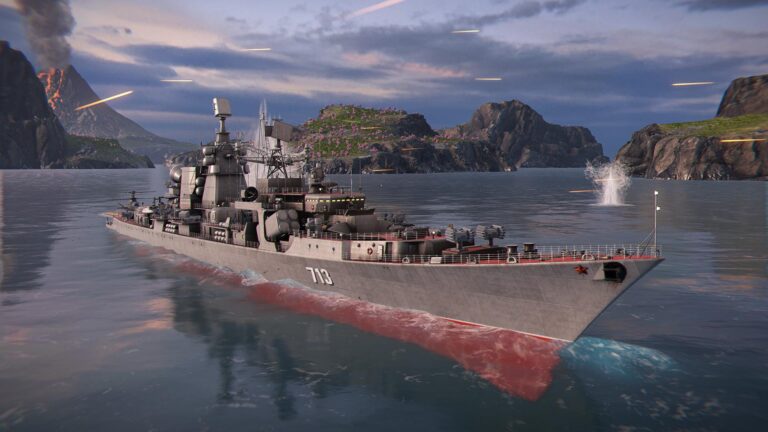Spain and Italy have deployed warships to monitor and protect a Gaza-bound flotilla amidst escalating tensions in the region, Israeli National News reports. The move underscores growing international involvement as multiple nations seek to ensure the safety of vessels attempting to reach the blockaded Palestinian territory. This development comes amid heightened security concerns and ongoing political disputes surrounding access to Gaza.
Spain and Italy Mobilize Naval Forces Amid Rising Gaza Flotilla Tensions
In response to escalating tensions surrounding the Gaza flotilla, Spain and Italy have strategically deployed naval vessels to the eastern Mediterranean. These moves aim to ensure the safety of humanitarian aid convoys attempting to reach Gaza, amid growing concerns over potential confrontations with Israeli forces. Both governments emphasize their commitment to maritime security and the protection of non-combatant vessels, signaling a heightened international interest in the volatile situation around Gaza’s coastal waters.
The naval deployment includes:
- Spanish frigates equipped with advanced radar and surveillance systems
- Italian patrol crafts tasked with escorting aid ships and monitoring regional naval activity
- Joint coordination centers established for real-time intelligence sharing between Spain, Italy, and allied Mediterranean countries
This coordinated naval presence represents a clear message to all parties involved, with Spain and Italy advocating for peaceful passage of the flotilla and emphasizing adherence to international maritime law.
| Country | Naval Asset Type | Primary Mission | Deployment Area |
|---|---|---|---|
| Spain | Frigates | Surveillance & Protection | Eastern Mediterranean Sea |
| Italy | Patrol Crafts | Escort & Monitoring | Near Gaza Coastal Waters |
Strategic Implications of European Warship Deployments in Eastern Mediterranean
The deployment of Spanish and Italian warships to protect the Gaza flotilla underscores a significant shift in naval strategy within the Eastern Mediterranean, signaling heightened European involvement in a region long dominated by geopolitical tensions. This move reflects the increasing importance placed on safeguarding maritime routes and humanitarian missions amid escalating conflicts near Gaza. Key European powers are leveraging their naval capabilities to assert influence, maintain regional stability, and demonstrate solidarity with international humanitarian efforts.
- Projection of Power: The warships serve as a tangible projection of European naval power, deterring aggressive actions that could disrupt peace initiatives or impede humanitarian aid deliveries.
- Alliance Coordination: Joint deployment highlights enhanced military coordination between Spain and Italy, strengthening NATO’s maritime posture in a volatile theater.
- Strategic Positioning: Positioning forces close to Gaza allows rapid response options, balancing diplomatic pressure with operational readiness.
| Country | Type of Warship | Primary Mission |
|---|---|---|
| Spain | Frigate | Escort & Protection |
| Italy | Destroyer | Surveillance & Deterrence |
Recommendations for Diplomatic Engagement to Prevent Escalation in Gaza Maritime Zones
To mitigate rising tensions in the Gaza maritime zones, fostering direct communication channels between involved nations is imperative. Establishing multilateral dialogue platforms could facilitate transparency and reduce misunderstandings. Countries should prioritize diplomatic envoys to engage with regional stakeholders, ensuring adherence to international maritime laws while addressing humanitarian concerns. Additionally, deploying neutral observers or peacekeepers could serve as confidence-building measures that help monitor activities and de-escalate potential conflicts.
Strategic cooperation through joint initiatives is another critical element in preventing escalation. Collaborative maritime security operations, involving Spain, Italy, Israel, and neighboring states, can enhance situational awareness and contribute to stable navigation corridors. The following table outlines potential diplomatic tools and their intended impact:
| Diplomatic Tool | Purpose | Expected Outcome |
|---|---|---|
| Multilateral Negotiations | Coordinate policies & reduce hostilities | Decreased military confrontations |
| Observer Missions | Monitor compliance with international law | Increased transparency |
| Joint Patrols | Secure maritime routes together | Improved trust among parties |
| Humanitarian Coordination | Ensure aid reaches civilians safely | Reduced civilian suffering |
Commitment to these measures will be critical in maintaining stability in a volatile region, emphasizing diplomacy over military escalation while safeguarding humanitarian access.
To Wrap It Up
As tensions continue to mount in the Mediterranean, the deployment of Spanish and Italian warships to safeguard the Gaza flotilla underscores the growing international concern over the ongoing conflict. Both nations have emphasized their commitment to ensuring maritime security while preventing further escalation. Observers will be watching closely to see how these developments influence the geopolitical landscape and the delicate balance of power in the region.




